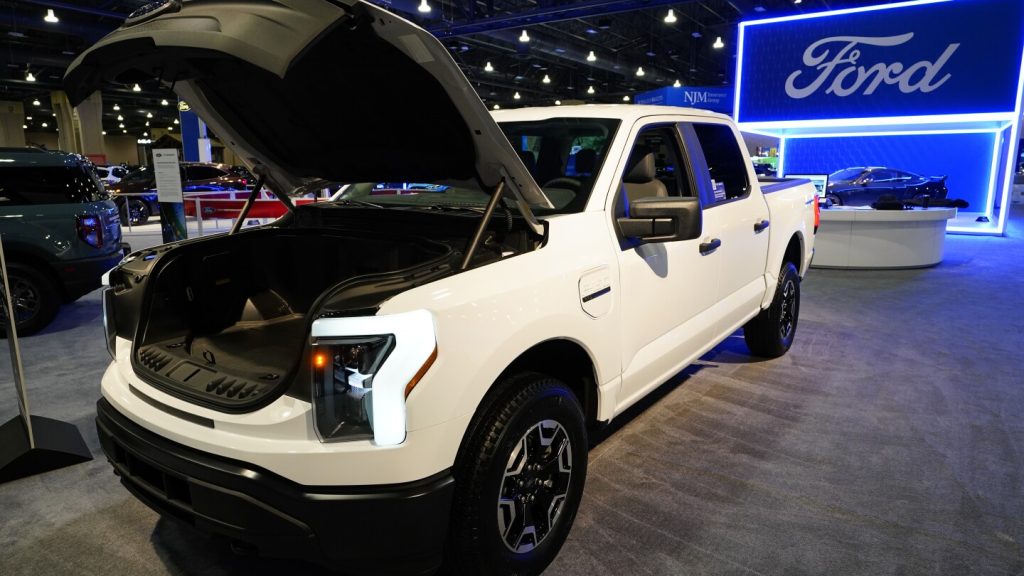Ford Motor Co. announced that it will be delaying the release of new electric pickup trucks and a large electric SUV due to a slowdown in U.S. electric vehicle sales. The highly anticipated new electric pickup, which was set to be produced at a new factory in Tennessee, will now be delayed until 2026. Similarly, the new large electric SUV with three rows of seats, planned for production at the company’s factory in Ontario, will be delayed until 2027. This decision comes as U.S. electric vehicle sales growth slowed to 3.3% in the first quarter of the year, well below the 47% increase seen last year.
As an alternative strategy, Ford plans to add gas-electric hybrids to its model lineup in response to the slowdown in electric vehicle sales. The company aims to offer hybrid versions of all its gasoline passenger vehicles in North America by the end of the decade. The shift towards hybrid vehicles is seen as a way to appeal to a broader audience of consumers who may be skeptical about making the switch to fully electric vehicles. This move comes as hybrid sales grew significantly in the first quarter of the year, with plug-in hybrids also seeing a significant increase in sales, indicating a potential shift in consumer preferences.
Despite the delay in its electric vehicle lineup, Ford projects that its commercial vehicles will see an increase in profitability, with expected earnings of $8 billion to $9 billion, up from $7.2 billion last year. The company also expects its gasoline powered vehicles and hybrids to bring in $7 billion to $7.5 billion in profits, similar to the previous year. However, the pretax losses for Ford’s electric vehicle unit are expected to widen from $4.7 billion in 2020 to a range of $5 billion to $5.5 billion in 2021. This indicates a challenging financial outlook for the company’s electric vehicle segment.
Industry analysts believe that early technology adopters and environmentally conscious consumers have already jumped on the electric vehicle bandwagon. The challenge now lies in convincing mainstream buyers to make the switch to electric vehicles, as concerns over range limitations and the availability of charging stations continue to be barriers to adoption. Automakers will need to address these concerns in order to attract a wider range of consumers to electric vehicles and drive further growth in the market. Ford’s decision to focus on gas-electric hybrids could be a strategic move to bridge the gap between traditional internal combustion vehicles and fully electric models.
With the automotive industry undergoing a shift towards electrification, major automakers like Ford are facing challenges in balancing their investment in electric vehicles with the current market demand. The slowdown in U.S. electric vehicle sales has prompted Ford to adjust its strategy and prioritize the introduction of gas-electric hybrid models. This decision reflects the evolving landscape of the automotive industry, as companies navigate the transition towards sustainable mobility solutions while also addressing the concerns and preferences of consumers. Ford’s focus on expanding its hybrid lineup indicates a strategic shift in response to changing market dynamics and the need to appeal to a broader audience of car buyers.


